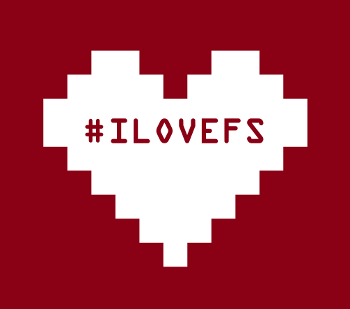Thoughts about tech, politics, and more
(Tag: guide)
Build FSFE websites locally
Note: This guide is also available in FSFE’s wiki now, and it will be the only version maintained. So please head over to the wiki if you’re planning to follow this guide.
Those who create, edit, and translate FSFE websites already know that the source files are XHTML files which are build with a XSLT processor, including a lot of custom stuff. One of the huge advantages from that is that we don’t have to rely on dynamic website processors and databases, on the other hand there are a few drawbacks as well: websites need a few minutes to be generated by the central build system, and it’s quite easy to mess up with the XML syntax. Now if an editor wants to create or edit a page, she needs to wait a few minutes until the build system has finished everytime she wants to test how the website looks like. So in this guide I will show how to build single websites on your own computer in a fraction of the FSFE’s system build time, so you’ll only need to commit your changes as soon as the file looks as you want it. All you need is a bit hard disk space and around one hour time to set up everything.
Erste Testgeräte für Routerfreiheit versendet
Wie Ihr vielleicht schon mitbekommen habt, ist am 1. August die Welt etwas freier geworden. Nun nämlich ist das Gesetz für Endgerätefreiheit in Kraft, welches endlich erlaubt, dass Kunden deutscher Internetanbieter einen Router oder ein Modem ihrer Wahl an ihren Anschluss klemmen dürfen. Die FSFE hat sich von Anfang an für dieses Recht eingesetzt und schlussendlich haben wir diesen großen Erfolg errungen, der den Routerzwang endgültig abschaffen soll.
Doch ein Gesetz auf Papier bringt wenig, wenn es in der Realität nicht eingehalten oder trickreich umschifft wird. Deshalb möchten wir so schnell und ausführlich wie möglich wissen, welche Internetanbieter ihren Kunden die neuen gesetzlich gesicherten Freiheiten zugestehen und welche uns weiter mit Zwangsgeräten beglücken wollen. Die FSFE möchte deshalb folgendermaßen Licht ins Dunkel bringen:
Switching my code from gitweb to Gogs

Since end of 2014 I published some of my Free Software code – mostly Bash, R and HTML/PHP – on a self-hosted gitweb instance. I did this because I wanted to share the work I’ve done with other people because I’ve learnt a lot by reading other people’s code. Although I’m just a „hobby programmer“, I hoped at least some people can benefit from it.
The last few days, I switched from gitweb, a very simple web interface for my git repositories, to Gogs, a feature-rich webservice which still is lightweight, and quite simple to install and maintain – and of course Free Software! By doing so, people can now register with my Gogs instance, open issue tickets, fork my projects and send pull requests – very similar to non/semi-free services like GitHub or GitLab.
splitDL – Downloading huge files from slow and unstable internet connections
Imagine you want install GNU/Linux but your bandwidth won’t let you…
tl;dr: I wrote a rather small Bash script which splits huge files into several smaller ones and downloads them. To ensure the integrity, every small files is being checked for its hashsum and file size.
That’s the problem I was facing in the past days. In the school I’m working at (Moshi Institute of Technology, MIT) I set up a GNU/Linux server to provide services like file sharing, website design (on local servers to avoid the slow internet) and central backups. The ongoing plan is the setup of 5-10 (and later more) new computers with a GNU/Linux OS in contrast to the ancient and non-free WindowsXP installations – project „Linux Classroom“ is officially born.
I love Taskwarrior, therefore I love Free Software
“It’s Valentine’s day and you’re writing a blog post? Are you nuts?” you might ask. Well, but it’s not only Valentine’s day but also I love Free Software day. This day is proclaimed every year on February 14 by the Free Software Foundation Europe to thank all developers and contributors of Free Software (software you can use for any purpose, which source code you or others can analyze, which can be modified and distributed).
Setting Openstreetmap as default in Thunderbird’s contacts
If you use Thunderbird and its contact functionality, you might already have stumbled over the „show on map“ feature. If you add addresses to your contacts (no matter if directly in Thunderbird or via CalDAV) there appears a button which enabled you to open a map with the contact’s location.
The default search provider is Google Maps. If you don’t like this service and prefer free and open systems like me, you can also add openstreetmap.org as your default map service. You only have to change a value in the advanced configuration.
Birthday Calendar with ownCloud via CalDAV
Not a big issue in this blog post but an important one. Maybe I can save you some valuable time if you ever look for such a function.

As you know I’m a heavy user of ownCloud and you also might know that synchronisation is a big topic for me. And the third thing you should know that forgetting a good friend’s birthday really su… well, it’s no good style. This almost happened to me some days ago because I couldn’t check it on my Notebook with Thunderbird. My setup looks like this: All contacts (with birthday tags) in ownCloud, and these CardDAV address books are synced with my Android phone and Thunderbird/SOGo-Connector on my notebook, as well as the CalDAV calendars with Lightning.
Guter E-Mail-Stil
Heutzutage ist schriftlicher Stil in E-Mails ebenso wichtig wie eine angemessene Sprechweise oder standardisierte Floskeln und Höflichkeiten in Briefen. E-Mails sind trotz Short Messaging wie per SMS, WhatsApp oder Facebook weiterhin die bedeutenste digitale Kommunikationsmöglichkeit.
Das ist auch der Grund, weshalb ein guter E-Mail-Stil so enorm wichtig ist: Wir werden von E-Mails regelrecht bombardiert, auch wenn man den Spam nicht einmal mit einberechnet. Daher sollten wir uns und unseren Kommunikationspartnern die Sache erleichtern, indem wir einen guten, effizienten und dennoch freundlichen Umgang und Stil pflegen.
Mounting a SFTP storage in GNU/Linux
This (longer than expected) post explains how to transfer files securely between your device and an external storage. The first part may be useful for you if you only have little knowledge of terms like (S)FTP(S) and want to learn something about widely used technologies. The second part will help you to mount an external storage so you can manage all files as if they are on your local device and the third, fourth and fifth part will concentrate on easing the mounting process by the help of hostnames, Private/Public Keys and a shell script.
Organising micro task emails in Thunderbird
The title of this post sounds very significant but to be honest, it’s a small thing.
Everybody has her/his/its own workflow regarding emails. For example me: I LOVE folders! When it comes to the crunch I probably would be able to organise my whole life into folders.
Well, at least this is what I thought until I began my internship at FSFE. I was used to a high income rate (do you say so?) before but something changed: Normally I read my emails and if something’s important, I open a new task in my taskmanager or simply write it down. In the office I also read lot’s of emails and can put them easily in folders via filters (in Thunderbird and with qmail/maildrop on my mailserver), for example emails in mailing lists.

